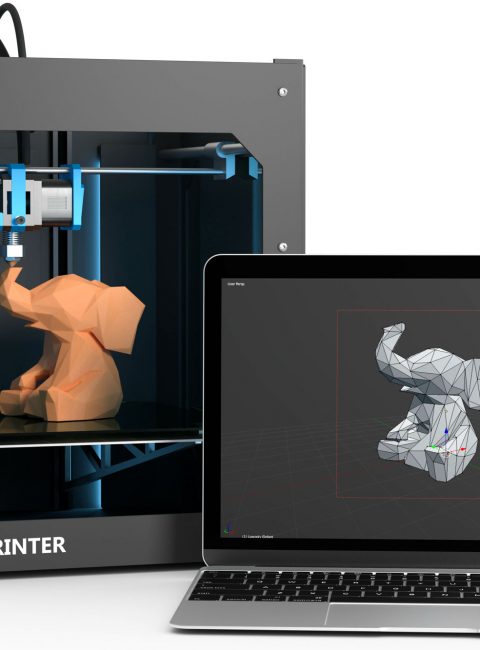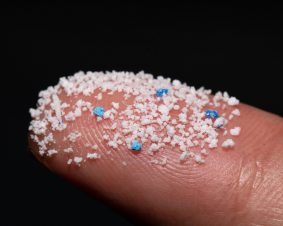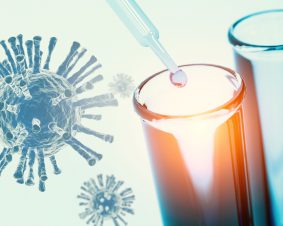 >
Spotlight November 2023: Early Awareness and Action System for Advanced Materials (Early4AdMa)
>
Spotlight November 2023: Early Awareness and Action System for Advanced Materials (Early4AdMa)
Advanced materials hold immense potential to address global challenges such as environmental degradation, transformation of the energy sector, and development towards circularity. To harness their benefits while ensuring safety and sustainability, regulatory bodies, scientific communities, and industries have recognized the need for proactive approaches. The “Early4AdMa” system is a pre-regulatory risk governance tool for advanced materials, aimed at identifying potential safety, sustainability, and regulatory issues thus promoting informed decision-making and responsible innovation.
The recent report published by the OECD emphasizes the importance of interdisciplinary collaboration and the need to assess materials safety throughout their life cycle. The system’s potential impact and the role of the Safe-and-Sustainable-by-Design concept in material innovation are also discussed.
„Early4AdMa” consists of two tiers: Tier 1 is an optional broad screening assessment that examines advanced materials for potential issues using the NESSI approach (Novelty, Exposure, Severity, Scope, and Immediacy), sustainability, and regulatory considerations. Tier 2, on the other hand, involves a detailed assessment of selected materials for safety, sustainability, and regulatory issues. The system’s development focus is primarily on Tier 2, which is considered more comprehensive and ready-to-use.
The primary objectives of Early4AdMa include:
1. Identifying potential issues related to human health, environment, sustainability, and regulation associated with advanced materials.
2. Supporting regulatory preparedness for governing advanced materials.
3. Facilitating innovation by providing early insights into potential challenges.
4. Promoting the safe and sustainable development of advanced materials.
Early4AdMa is intended for use by regulatory decision-makers, policy-makers, and risk assessors. The system acknowledges that advanced materials can undergo transformations throughout their life cycle. Experts are tasked with identifying potential transformation forms and associated exposure hotspots, even though this can be challenging, especially in early market stages. Recognizing data limitations, the system employs conservative assessments, aiming to identify potential issues and information gaps rather than delivering definitive conclusions. Experts are encouraged to use “unknown” when unsure, with the importance of explaining assumptions. While initially focused on materials with nanocomponents, Early4AdMa adapts to advanced materials without nano-components as the field progresses. Early identification of potential human health, environmental, and sustainability risks can facilitate the innovation process, helping to circumvent regulatory uncertainties and innovation barriers.
The Early4AdMa system represents a critical advancement in the proactive management of advanced materials. Its two-tiered approach, interdisciplinary collaboration, and emphasis on life cycle considerations demonstrate its commitment to addressing safety, sustainability, and regulatory concerns. The system holds promise in ensuring that advanced materials are harnessed for their full potential while safeguarding human health and the environment. Moreover, the adoption of the Safe-and-Sustainable-by-Design concept further reinforces responsible innovation in the field of advanced materials.
Original publication:
OECD (2023), Early Awareness and Action System for Advanced Materials (Early4AdMa): Pre-regulatory and anticipatory risk governance tool to Advanced Materials, OECD Series on the Safety of Manufactured Nanomaterials, No. 108, Environment, Health and Safety, Environment Directorate, OECD.
More information:
• European Green Deal: https://en.wikipedia.org/wiki/European_Green_Deal
• Chemicals Strategy for Sustainability: https://echa.europa.eu/hot-topics/chemicals-strategy-for-sustainability
• European Advanced Materials 2030 Initiative : https://www.ami2030.eu

Weitere Spotlights
Spotlight January 2021: Nanoplastics challenge – How to improve tracking of nanopolystyrene distribution in the environment.
In January, we present a paper published in the Nature Journal communications materials. The article focuses on the development of a new detection method of nanopolystyrene. The method not only makes it possible to detect nanoplastics in the environment for the first time, but also to determine their accumulation in plants and animals. Nanoplastics, which […]
Read moreSpotlight March 2022: Safe Materials from Scratch – Safe-by-Design-Concept in action
In recent decades, German research on nanomaterials and new, innovative materials has been widely expanded by material safety aspects. European initiatives also pay significant attention to this: both the European Union (EU) Green Deal, and the Chemicals Strategy for Sustainability (CSS) aim to create a sustainable, climate-neutral economy with sustainable and safe chemicals and products, […]
Read moreSpotlight November 2021: Safe Materials from Scratch – Safe-by-Design in Materials Research
Advances in the field of materials science continue to amaze us with nanoscale materials with extraordinary chemical, electrical, optical, and numerous other properties. However, some nanoscale materials have different toxicological profiles compared to the same bulk material. Since safety issues are usually addressed just before launching a product into the market, safety issues may be […]
Read moreSpotlight March 2021: Is Nanotechnology the Swiss Army Knife against Future Pandemics?
The COVID 19 outbreak has led to a fundamental rethinking of existing approaches to diagnosis, treatment, and prevention methods. The need for better and more efficient concepts is global and urgent. Nanotechnology has long been at the forefront of innovation and has led to advances in many different disciplines. Could this interdisciplinary field help develop […]
Read more

